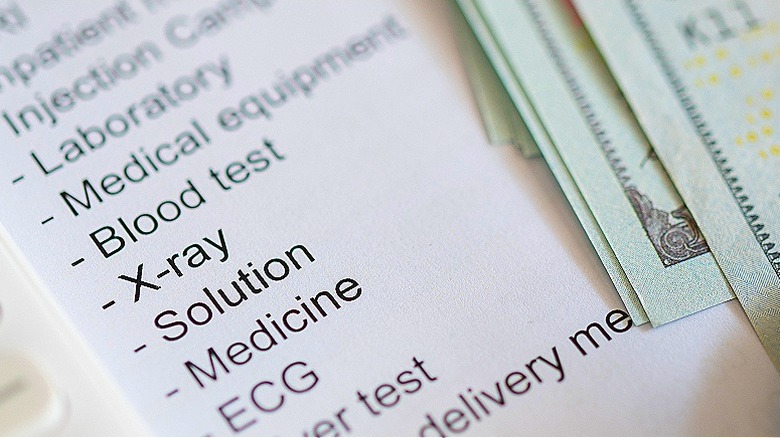3 Reasons To Break The Rules And Collect Your Social Security Early
This year, the highest amount anyone can earn on their Social Security retirement benefits after taking full retirement — 66 years old if your birthday falls between 1943 and 1954, 67 if born in 1955 or beyond — is $3,822 per month. If you were to collect your Social Security five years earlier at 62 years old, that amount would dwindle to $2,710. On the other side of the equation, waiting a few years and collecting at 70 years old would earn you $4,873, almost $1,000 more than with full retirement age. This is one of a few Social Security rules that can increase your monthly benefits, and it stands to reason that waiting longer to collect your benefits would be the martyr financial option.
However, in 2022, fewer than 10% of 3.4 million Americans waited until they were 70 years old to collect their Social Security benefits, with nearly a quarter of that number taking their benefits much earlier at 62 years old. Looking at this from a purely financial perspective, it seems like shortsighted logic to collect your Social Security early and it's understandable that most financial advisors would steer you away from doing that. However, there are exceptions to every rule, and taking your retirement benefits early is no different. Here are a few reasons why it may actually make a whole lot of sense to collect your Social Security early.
You're in poor health
The Transamerica Center for Retirement Studies found that 41% of pre-retirees cite declining health as the main factor in considering early retirement, even though Medicare doesn't actually kick in until age 65. The irony, however, of a large number of Americans taking retirement at 62 years old is that according to the National Bureau of Economic Research, male mortality rates go up 2% per year from age 62 and accounts for an average 11,000 deaths occurring within the following year. Thus, if you're going into your 60s with a chronic life-limiting health condition — cancer or dementia, for instance — that's only going to get worse with time, the idea of retiring early may understandably be more attractive to you. You should also consider that, although Medicare doesn't begin until you're 65, your health insurance coverage doesn't significantly change either.
Although the U.S. pays almost twice as much on health care per citizen — $4,000 more per capita than any other country, or $13,493 per person — it has the lowest life expectancy of any comparable nation. According to the U.S. Bureau of Labor Statistics, in 2016, the average health care expense for people aged 55 to 64 was $4,958, and $5,956 for those aged 65 to 74. Further, an illness that deteriorates health may mean long-term home care, which is the most expensive it's been since data was first collected in 2005.
Your spouse makes more money than you
If you're married, this may provide another opportunity for at least one of you to collect Social Security a little earlier. The only caveat is that your spouse needs to make more money than you and be in it for the long haul — by that, we mean, prepared to work up to their full retirement age. It also assumes you're at least 62 years old at the time.
Taking your benefits early will limit the amount you receive; however, a rule allows you to claim spousal benefits based on your partner's earning history, up to 50% of what your spouse will receive at full retirement age. Once they reach this age, if the spousal benefit is higher than your own Social Security, the Social Security Administration will at that time adjust your benefits to reflect the higher amount.
Note that in order to receive 50% of your spouse's benefit at full retirement age, you also need to wait until full retirement age to claim it. If you opt to take the spousal benefit early, like at 62, the spousal benefit will be reduced to as little as 32.5%. Further, keep in mind that spousal benefits are based on a spouse's benefit at full retirement age. Even if your spouse works until age 70 to max out their benefits, your spousal benefit will still be a percentage of their benefit at full retirement age (66 or 67), not 70. (See what happens to your Social Security benefits after getting divorced.)
You don't need to wait
Maybe it just makes sense for you to start collecting your Social Security benefits early because you've done the work of building a proper nest egg, including what could be considered a 401(k) with a good rate of return. Although withdrawing an allowable percentage from your 401(k) can help you defer collecting Social Security if you're not confident about having enough retirement savings, a volatile market can negatively impact your investment returns and leave you with not as much money as you expected.
The better case scenario is to have enough money-investment vehicles and savings to be able to weather the future and support your early retirement. That could come from liquid assets like property, a pension or annuity, or a business or gig that earns you additional income on the side.
The average life expectancy in the U.S. as of 2022, according to the Centers for Disease Control and Prevention, is 77.5 years. If you're in relatively good health and considering collecting Social Security early, then you need to think about whether your savings match up with that reality. As Fidelity notes, the earlier you retire, the more savings you'll need.
If you retire at age 67, or full retirement age, Fidelity suggests having 10 times your current income saved at that time, but if you planned on retiring at 65, this increases to 12 times your salary. So, for example, if you earned $75,000 at the time you retire at age 67, you'd want $750,000 in savings to go along with your Social Security; if you retired at 65 and earned $75,000 at the time, then you'd theoretically need $900,000.



